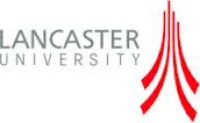






Mathematics and computing are intrinsically linked. By combining them in one Masters programme you gain a robust, advanced understanding of the two disciplines, equipping you with sophisticated specialist skills and detailed technical knowledge, allowing you to excel in your chosen career. Mathematics forms the foundations of all technology and computing, and as such, a rigorous study of the discipline provides invaluable insight and understanding into computer science. Furthermore, computer science is itself a dynamic discipline with a wide range of applications. As a result, this combined programme offers you a robust and comprehensive skill set, in-depth specialist knowledge, and fantastic career opportunities. You will explore the theory and practice of innovative and experimental computer science, while gaining an advanced understanding of the mathematical concepts and processes behind them. The depth and breadth of knowledge and experience gained over the four years will prove to be a challenging but rewarding opportunity, placing you in the strongest position as you move forward into your chosen career. During your first year, you will build on your previous knowledge and understanding of mathematical methods and concepts. Modules cover a wide range of topics from calculus, probability and statistics to logic, proofs and theorems. As well as developing your technical knowledge and mathematical skills, you will also enhance your data analysis, problem-solving and quantitative reasoning skills. Additionally, you will be introduced to software development and the fundamentals of computer science. These topics will allow you to gain a wealth of technical knowledge and develop key interdisciplinary skills. In the second year, you will begin to drill down into specialist maths and computing modules, studying Human-Computer Interaction; Software Design; Linear Algebra; and Social, Ethical and Professional Issues in Computing. These core modules will ensure you gain a solid understanding of the disciplines that is applicable in the real-world. Alongside these, you will also be able to choose from a range of optional maths modules, these include: Abstract Algebra, Complex Analysis, and Real Analysis. In addition, you will bring your skills and knowledge together in a group project, which will allow you to apply what you have learnt to the real-world and gain valuable, practical experience. For the third year, your study will be largely guided by your own interests. Compulsory modules, such as Artificial Intelligence, Languages and Compilation, and Security and Risk, will enhance and progress your computer science knowledge and provide insight into the sort of activity you will encounter in the real-world. However, the wide range of optional modules you can choose from will allow you to delve deeper into your own interests and customise the year to suit your career ambitions. The fourth and final year of your degree will introduce a variety of advanced modules for you to choose from. You can build a strong repertoire of maths and computer science skills and knowledge, to suit your interests and goals, including: Data Mining; Galois Theory; Lie Groups and Lie Algebras; Operator Theory; and Systems Architecture and Integration. You will also benefit from our Research Methods module, which will provide you with a formal understanding of research, and allow you to gain the appropriate skills and practices. You will learn to critically reflect on your research and will gain an appreciation of the different ways that other disciplines, academic communities and industries conduct research. This will provide invaluable insight and experience for many graduate careers as well as for continuing in academia.
| Number | Duration |
|---|---|
| 4 | year |
Careers Both computer science and maths graduates are highly sought after individually, but by combining the two disciplines a wide range of opportunities become available. Many of our graduates go on to work in professional software and systems development environments or in technology, computing, financial services or management roles. Our graduates can expect a competitive starting salary in careers such as: Business Analyst Data Scientist Information Systems Manager Multimedia Programmer Quantitative Analyst Risk Analyst Software Engineer